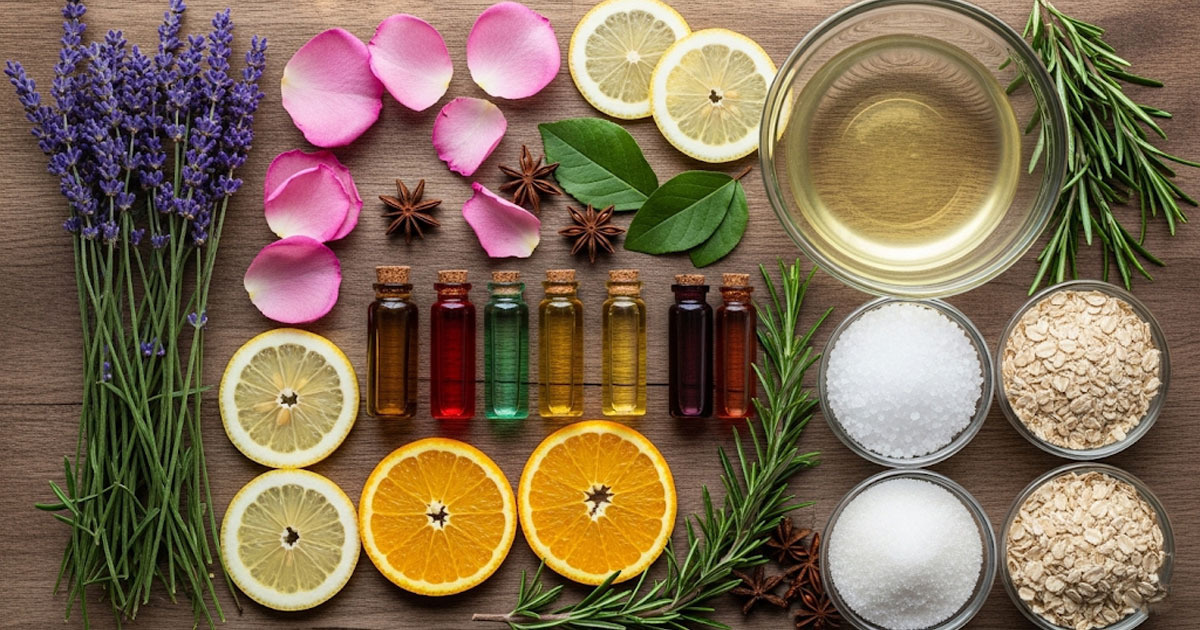The Dual Nature of Botanical Oils in Modern Formulations
In the intersection of skincare science and fine perfumery, botanical oils are gaining momentum for their multifaceted roles. Traditionally sourced from plant materials such as seeds, leaves, flowers, and roots, these oils offer a compelling blend of functional and sensorial benefits.
Their integration into both cosmetic and fragrance formulations is no longer a trend but a staple in product innovation. Botanical oils serve as natural emollients, delivering essential fatty acids, vitamins, and antioxidants that support skin health and barrier function.
Simultaneously, their aromatic profiles contribute to the olfactive structure of perfumes and scented skincare. This duality aligns well with market demand for cleaner, multi-functional ingredients with transparent sourcing and efficacy.
From a formulation perspective, botanical oils can replace synthetic emollients while adding unique top, middle, or base note characteristics. This versatility has encouraged perfumers and cosmetic chemists to explore their use in serums, body oils, solid perfumes, and ambient diffusers.
Skin Benefits Backed by Phytochemistry
Natural Emollients with Active Components
Botanical oils like jojoba, argan, and rosehip are rich in bioactive compounds that nourish the skin barrier. Jojoba oil mimics human sebum, making it ideal for balancing oily or acne-prone skin.
Argan oil, rich in tocopherols and fatty acids, enhances skin elasticity and provides anti-aging support. Rosehip oil offers a natural source of trans-retinoic acid, promoting cell turnover and collagen synthesis.
Unlike mineral oils or synthetic esters, these plant-based oils integrate into the skin’s lipid layer, improving texture and hydration without clogging pores. This makes them highly desirable for leave-on products such as facial oils and balms.
Anti-inflammatory and Antioxidant Properties
Several botanical oils contain phytosterols, polyphenols, and carotenoids, which provide anti-inflammatory and antioxidant effects. For instance, sea buckthorn oil is abundant in omega-7 fatty acids and beta-carotene, ideal for sensitized or inflamed skin.
Tamanu oil, often used in traditional medicine, has demonstrated wound-healing and antimicrobial properties in modern studies. These characteristics not only enhance skin health but also improve the overall sensory experience of skincare products, reinforcing their luxury appeal and therapeutic value.
Olfactive Value in Natural Perfumery
Aromatic Identity and Emotional Response
Beyond skin benefits, botanical oils play a central role in fragrance development, particularly in the niche and natural perfume sectors. Essential oils such as neroli, sandalwood, and ylang-ylang offer distinctive aromatic signatures that evoke emotional and psychological responses.
For instance, neroli provides a crisp, green floral top note with calming properties often used in stress-relief formulations. Sandalwood serves as a creamy, woody base note, grounding the perfume and extending longevity.
Ylang-ylang delivers a sensual, exotic floral note that can lift the heart of a composition. These oils do more than smell pleasant they influence mood, perception, and brand storytelling through olfactive memory and cultural significance.
Fixatives and Longevity Enhancement
Many botanical oils function as natural fixatives, extending the wear of a fragrance by slowing the evaporation of volatile compounds. Vetiver oil, extracted from the roots of Chrysopogon zizanioides, anchors lighter notes and adds complexity with its earthy, smoky nuances.
Similarly, patchouli oil not only offers therapeutic skin benefits but also acts as a base fixative with a musky, resinous quality. This olfactive-technical synergy enables perfumers to formulate cleaner, alcohol-free alternatives that maintain sophistication and performance over time.
Formulating with Purpose: Sustainability and Transparency
Modern consumers increasingly seek products that align with ecological values and wellness goals. Botanical oils provide a transparent ingredient story from farm to formulation making them ideal for clean beauty and sustainable fragrance lines.
Cold-press extraction, organic certification, and fair-trade sourcing enhance the appeal of oils like marula, baobab, and camellia, which also perform well across skincare and scent platforms. These considerations are vital not only for ethical production but also for regulatory compliance and brand positioning in competitive markets.
Furthermore, botanical oils allow formulators to minimize reliance on synthetic additives, aligning with ISO standards for natural and organic cosmetics and IFRA regulations for safe fragrance usage.




